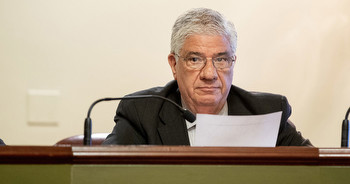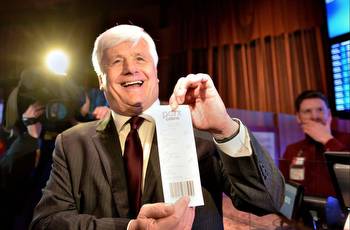Pennsylvania Bill Aims to Curb Online Gambling-Fueled Debt Crisis
In the bustling Harrisburg capital of Pennsylvania, lawmakers have put forward legislation that seeks to implement sweeping changes to the way online gamblers fund their games. The bill, which has raised a considerable amount of speculation, zeros in on the use of credit cards for internet wagering in the hope of curbing the state’s burgeoning credit card debt dilemma.
Just last month, Casino.org shed light on the initiatives of state Senator Wayne Fontana (D-Allegheny) to alter the regulatory landscape of online gambling. At the heart of Fontana’s robust campaign is the escalating credit card debt among Pennsylvanians—a dire situation he feels is continually exacerbated by the ability to gamble on credit. After weeks of deliberation, Fontana introduced Senate Bill 1159, a statute designed to eradicate credit cards as a legitimate method of payment for digital gaming; this includes lottery games, interactive slots, casino table games, sports betting, and even the flourishing world of fantasy sports.
⭐ ✔️
Fontana’s proposition is now in the hands of the Senate Community, Economic, and Recreational Development Committee, awaiting their much-anticipated analysis and review.
With an online gaming market that ranks among the wealthiest nationwide, Pennsylvania turns over more than $5 billion in lottery ticket sales each year, placing it as the eighth-richest state-run lottery in America. Pennsylvania’s regulated iGaming platforms reaped more than $1.74 billion from online slots and table players in 2023, with sports bets recooping almost $459 million. Fantasy sports operators hit a personal milestone last year by creating over $20 million in contest fees.
Industry data paints a rather stark picture: iGaming revenue has skyrocketed by over 200% since 2020, with a 142% uptick in Sportsbook wins during the same timeframe. At the core of Fontana’s agenda is ensuring that Keystone State gamblers only wager within their means and stop using credit as a makeshift piggy bank for their online gaming pursuits. To Fontana, one of the key pillars of reckless gambling is borrowing funds for betting— a practice he feels is legitimized by the state’s acceptance of credit card transactions for online gaming.
Fontana’s argument finds support from a 2022 study by Penn State University researchers, which exposed that over 36% of Pennsylvania online gaming enthusiasts reported experiencing at least one gambling-related issue. Fontana was razor-sharp on the link between gambling and credit card debt—the malaise which in his words, “often go hand in hand, leading to spiraling financial problems that hinder one’s ability to clear the debt.”
Senate Bill 1159 was endorsed not just by Fontana but also by six influential legislators: state Senators Amanda Cappelletti (D-Delaware), Jim Brewster (D-Allegheny), Jay Costa (D-Allegheny), Jimmy Dillon (D-Philadelphia), Lisa Baker (R-Wyoming), and Timothy Kearney (D-Delaware).
As these lawmakers strive to redraw the silhouette of Pennsylvania’s online gambling scene, Penn State also released a review earlier this month spotlighting a climb in online gambling rates. Last year, 16% of the state’s adult population took part in online betting, marking a 5% leap from 2022. This growth trend underscores an inconvenient truth about Pennsylvanians’ rapidly accumulating debt, which coincides with average monthly credit card balances fast approaching a worrying $6000— an alarming rise considering the pre-pandemic times of 2019 when online gaming was in a nascent stage.
Financial advisors often caution against carrying a credit card balance, arguing that it ranks as one of riskiest personal financial decisions anyone can make. Apart from the allure of the introductory 0% APR (annual percentage rate) offers that draw in consumers, the average credit card interest rate now teeters near a hefty 25%, largely owing to inflation and US Feds’ interest rate increases.






































